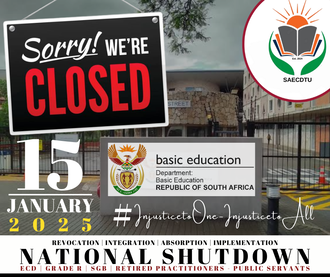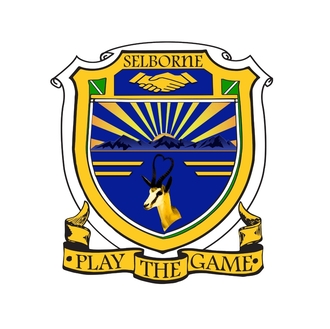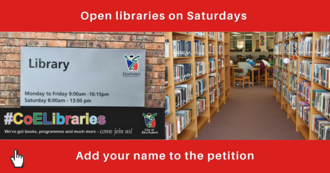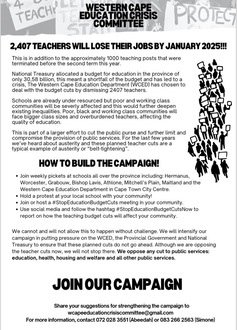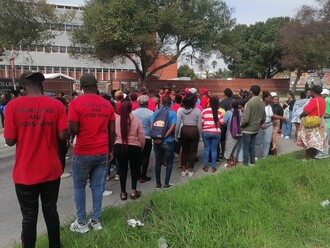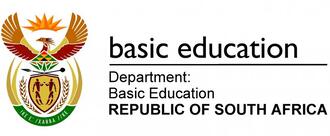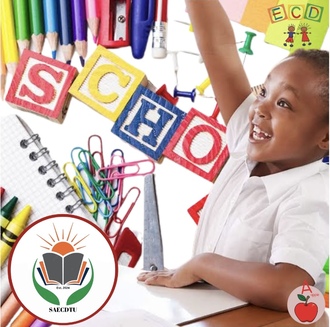- Featured
- Clean air
- Climate justice
- Consumer Rights
- Corporate Accountability
- Data access
- Early Childhood Development
- Economic fairness
- Education
- Electoral fairness
- Environmental justice
- Food justice
- Gender based violence
- Grants/social assistance
- Health
- Housing and infrastructure
- Industry interference
- Land Justice
- LGBTQIA+ rights
- Media/ information access
- Public transport
- Racism
- Reparations
- Safety
- Sanitation
- Service Delivery
- Sexual and Reproductive Rights
- Social justice
- Unemployment
- Womxn's rights/ gender equality
- Workers' rights
- More
-
We demand that Gauteng Department of Education bring back school transport NOW!• A lot of children from disadvantaged backgrounds are affected since they are the ones who mostly use buses, as they cannot afford to pay for private transportation. • There are children who can't walk to school because they live near farms with no school close by, and very few taxis • Some of these children are still very young to travel to school on their own, so they need reliable transport. • Their safety is not prioritised, as they are also exposed to human trafficking, as they have to hike to school. References 1. Concerned parents urge GDE to resolve scholar transport problems by SABC, 03 February 2026. https://www.sabcnews.com/sabcnews/concerned-parents-urge-gde-to-resolve-scholar-transport-problems/660 of 800 SignaturesCreated by Mamello Segale
-
TVET Students Are Stuck Without Diplomas: Fund In-Service Training Now!National Accredited Technical Education (NATED) qualifications are offered at Technical and Vocational Education and Training (TVET) Colleges. These programmes consist of N4, N5, and N6 levels and are designed to combine theory with practical workplace experience. After completing all theoretical subjects, as students, we are legally required to complete a compulsory 18 months of in-service training before we can be awarded a national diploma. Without this workplace exposure, the qualification remains incomplete, regardless of academic success. Minister, we did what the system asked of us. The requirement of 18 months of in-service training has become a wall instead of a bridge. Some students wait two, three, or even more years just to find placement. During this time, our qualifications remain incomplete, our hopes are delayed, and our lives are put on hold. The pain is made worse by the lack of funding support. NSFAS funds the theoretical part of NATED programmes but abandons students when it comes to in-service training. We are expected to survive, travel, and sometimes work full-time for 18 months without pay or funding. This is not fair, and it is not realistic. Many of us are told to “volunteer”. Honourable Minister, this advice does not consider our reality. Some of us are parents. Some are breadwinners. Some support siblings, children, or elderly family members. Eighteen months without income is not volunteering; it is suffering. This situation is draining us emotionally, financially, and mentally. Each year that passes without placement pushes students further into poverty, frustration, and hopelessness. We watch university students complete their qualifications within the expected timeframe, while TVET students — especially in Public Management — remain stuck, forgotten, and left behind. Honourable Minister, we are not asking for special treatment. We are asking for fairness, dignity, and a clear path forward. We urgently plead with the Department to resolve this matter in 2026, before the State of the Nation Address by His Excellency President Cyril Ramaphosa, so that the nation can hear a clear plan on how TVET NATED students will finally be supported to complete their qualifications and obtain their diplomas. TVET education was meant to open doors, not trap students in endless waiting. We still believe in the system, but belief alone cannot feed our families or build our futures. We humbly request your urgent intervention and leadership. Yours sincerely, Norman Mathebula TVET College Graduate (N4–N6) On behalf of the affected TVET NATED students South Africa29,184 of 30,000 SignaturesCreated by Norman Mathebula

-
Africa Day Now! Make 25 May a National Public HolidayAfrica Day is not just a date in the calendar; it is the heartbeat of our liberation story. On the 25th of May 1963, African leaders came together to declare that the future of the continent could no longer be dictated by foreign powers, but by Africans themselves. This unity gave birth to the Organisation of African Unity, the predecessor of today’s African Union. Without this collective effort, many nations, including our own, might still be under the chains of colonial rule. Recognising Africa Day as a national holiday honours that history, but also reminds us of the power of unity in the present. In South Africa, our freedom was not won in isolation. We received support from our African neighbours, sanctuary, training, weapons, and solidarity, which kept the liberation struggle alive. Yet today, many South Africans are not taught the significance of this sacrifice, nor the deeper meaning of Pan-African identity. By making Africa Day a national holiday, we ensure that every citizen, young and old, learns that our liberation is part of a greater African story. It will build pride in our shared identity and foster much-needed unity in a country where divisions still run deep. This campaign matters because history shows us that when citizens demand recognition, decision-makers listen. Public holidays are not simply days off work; they are powerful symbols of what a nation values. If enough South Africans raise their voices, the government will be forced to act. By signing, supporting, and spreading this campaign, we place public pressure on leaders to align South Africa with the rest of the continent in honouring Africa Day. Public demand transforms symbolic proposals into national commitments. Most importantly, Africa Day as a national holiday is not about the past alone; it is about the future. It is about ensuring that South Africa takes its rightful place as a champion of Pan-African unity, that our children grow up understanding the value of ubuntu, and that our country recommits to the African Agenda 2063: building a peaceful, prosperous, and globally influential Africa. By joining this campaign, you are not just demanding a holiday; you are demanding pride, unity, and a collective African future.342 of 400 SignaturesCreated by Africa Unite

-
Minister Godongwana invest in ECD practitionersAccording to the latest research by Dr B.J Langa, Early Childhood Development (ECD) affects all of us in various levels: family, community and national. It affects the household economy, micro-economy and macroeconomics. The important stage of a child for development is from birth to 5 years. South Africa must prioritise and invest in our Early Childhood Development (ECD) programme indefinitely. Lastly, most of us are definite products of the Early Childhood Development (ECD) known as Day Care, Day Mama or Crèche. This fight is worth it for our mentors.1,464 of 2,000 SignaturesCreated by South African Early Childhood Teachers Union (SAECDTU)
-
Prosecute teachers that hit and abuse learners in schoolsEducators are legally obligated to create a safe learning environment for learners. Physical, verbal and psychological abuse is not acceptable in schools. Corporal punishment was abolished in 1997 with the constitution stating that no one may administer corporal punishment at a school against a learner; a person who does this conscious of this provision is guilty of a criminal offence. Alarming statistics show that 57% of South African learners reported that they are experiencing violence at school, [4]. Personal testimony: "On the 18th of October 2024, my daughter, a 10-year-old grade four learner, was assaulted by a male educator who used his fists to punch her head multiple times. Pheasant Folly Primary educators instruct learners not to tell their parents about teacher-on-learner violence that occurs at school. The school harbours educators who are a danger to our children by justifying his behaviour as my daughter was “deserving” of the punches to the head, and he showed no remorse even after being in my presence in the principal’s office, where he admitted to the crime he committed against Cleo (pseudonym). My daughter has been a victim of bullying since last year, 2023, and I have personally escalated the case to the school. The case was recorded and nothing came of that case. Feeling like she needed to defend herself from her classmate (a boy) who wanted her snacks when their altercation escalated to the point where they exchanged insults. This scene was playing out while the learners were left unsupervised long enough for the two learners to have a verbal argument. When the educator finally showed up, one of the students alerted him that the two classmates were having an argument. The educator invited the 2 to the front of the class, where he then punched the boy 3 times with a closed fist on his head whilst he violently punched Cleo several times on her head as well. He told her that she deserved it more than the boy. After the assault, she went to sit at her desk and began to cry from the pain and humiliation that had just occurred in front of her 60-odd classmates. Instead of sending any of the other students who weren’t crying and in pain, the teacher sent Cleo (a crying child) to go and fetch a book from the teacher next door. Upon returning, Cleo put the book on the teacher’s table and went to sit down. He followed her to her desk and demanded to know why she didn’t put the book in his hand. He went on to call her disrespectful and said he’d remedy her disrespectful behaviour. He punched her again several times on the head until my daughter begged for forgiveness, but still, her begging fell on deaf ears as he ground his teeth together and punched a 10-year-old girl and a level 7 student several times on her head …AGAIN! At this point, the teacher told my daughter how she would not amount to anything and how she would start smoking weed and not complete school. He asked the class if Cleo would complete school, and they all said in unison, “No”! When the teacher was done demeaning, degrading and humiliating my daughter, he then said, “go and tell your mother to come to school in her stinking morning gown and see if she will do anything to me coz uzosirasela nje”, meaning I will only make noise for them" The psychological effects that abuse has on learners are irreparable, and after opening a case with SAPS and reporting my daughter's unfortunate plight to the school principal, SAPS did not send me an SMS with the case number, but for some reason, the case ended up in court when I did not know what was happening. The investigating officer had an unwelcome attitude and simply told me that the case would not be successful because I did not want to work with him, he claimed. He said my daughter’s statement was missing, and yet I took her personally to Eden Park Police Station, and the clerk took the statement from my daughter. These are some of the things that demoralize us, police negligence is pervasive. This kind of cruelty to children should be met with zero tolerance. The safety of the learners should be a priority because they are vulnerable and still in developmental stages. How educators treat learners and what they deposit into their brains will have a long-lasting effect and will determine what kind of adult the learner will grow into. Such teachers should be prosecuted to the full extent of the law as they are a danger to learners. Prosecution will also work as a deterrent for future abuse in schools. WHAT CAN BE DONE ? • Prosecute teachers who assault and abuse learners in schools to the full extent of the law. • Ensure swift and fair disciplinary action against abusive teachers. • Develop and implement safe and effective reporting mechanisms for learner abuse in schools. • Provide effective training on alternative discipline methods and implement them. • Teachers who are found to use violence on learners when they’ve been forewarned against it must be dismissed immediately! • Develop policies that promote safe and supportive learning environments • Teachers should be trained to exercise the degree of care they give to their own children. We, therefore, call upon all parents and guardians who have children in public schools to come together and join our campaign NOW before we lose more learner's lives as a result of physical, emotional and psychological abuse that teachers are imposing on our children. If enough of us come together, we can put pressure on the Department of Basic Education MEC, Matome Chiloane and the Director of National Prosecution Authority -Shamila Batohi, to prosecute teachers who assault learners in schools. Please sign the petition and share it widely to reach as many parents and guardians as possible. Help us get justice for our children! “If to correct a student is to humiliate them, then you don’t know how to teach” References [1] Department of Basic Education Handbook, second edition [2] Department of Basic Education Handbook, second edition [3] Gauteng Education Department probes allegations of bullying after Grade 6 boy's alleged suicide by Yoliswa Sobuwa for News24. 25 October 2023. https://www.news24.com/news24/southafrica/news/gauteng-education-dept-probes-allegations-of-bullying-after-grade-6-boys-alleged-suicide-20231025 [4] Global School-based Student Survey, 2019.44 of 100 SignaturesCreated by SONIA MZUNGA

-
NATIONAL SHUTDOWN JANUARY, 15, 2025 BY SAECDTUAfter 28 Years, since the inception of Grade R through, South African School Act (SASA) of 1996. Stipulated the importance of the Early Childhood Development Programme in a new democratic dispensation. Due to ongoing implementation challenges and failures which resulted to constant reviews of the curriculum since 2000 - 2015, which resulted to the Phasing Out of multiple Grade R qualifications; such as NQF Level 4 & 5, Certificate in Educare, National Diploma in Educare, PGDE, Diploma in Grade R Qualification and other. All of the above is manipulated by the National Development Program (NDP2030), which is an International plan of action, irrelevant to the standards of South Africa and its economy, which seeks to improve the standard of education in a barbaric and inconsiderate manner and processes. Thousands of Grade R Teachers are literally unemployed in South Africa, at least 11900 Strugglers with Diploma in Grade R Qualifications are without jobs and most are embedded with trauma and depression as a result of education and economic inefficiency. SGB educators still earn from R2500 - 5000 for the past 10 years, without proper placement and with no benefits whatsoever. No maternity leave, which means the SGB teachers in question must appoint a teacher for a period of maternity leave and pays the teacher from her own stipend. We have teachers who laboured for 8 to 26 years, teaching our children without UIF and Pension fund contribution.1,685 of 2,000 SignaturesCreated by Melchisedec Shalom
-
Reprimand Selborne Primary School Principal for extorting parents.Parents who cannot afford to pay school fees must apply to the SGB for conditional, partial or full exemption from paying school fees. Application forms can be obtained from the SGB through the principal of a school. This is instituted by the Department of Education, and it is completely unacceptable to demand a fee for this process from parents who are already unemployed. To make matters worse, the principal withholds term reports from parents who owe school fees. Let's work together to put pressure on DBE to intervene and ensure that parents and children who cannot afford to pay school fees are granted exemption forms without having to pay. DBE also has to intervene and ensure the water issue at the school is sorted, let's preserve the dignity of the children. References [1] Information for parents and guardians: school fees and exemption. Department of Basic Education. 2025. https://www.education.gov.za/Informationfor/ParentsandGuardians/SchoolFees.aspx7 of 100 Signatures
-
Open libraries on SaturdaysIn October 2023, the City of Ekurhuleni opened selected libraries every Saturday to help students during exam season. While this was a great move, opening libraries for four extra Saturdays, each for only five hours, is not enough. Learners need consistent access to library resources to support their learning throughout the year, especially since many learners in townships face harsh conditions at home that are not conducive to effective studying. In townships, low-income families live in one-room rentals where everyone is trying to go about their day—cooking, watching TV, and making noise. This makes it hard for learners to focus on their homework and study [1]. The distractions don’t stop there. With neighbours running businesses from their yards and pavement, and the constant noise of taxis and weekend parties, studying can feel nearly impossible [1]. Libraries serve as safe spaces where learners study away from turbulent homes and townships [2]. As Lunga Nqadolo from The Bookery points out, “Libraries are not just about books; they’re also spaces for kids to do homework and join reading groups and other activities. This early exposure helps them succeed in school” [3]. Libraries provide students access to a wide range of books, reference materials, research databases, and online resources [4]. After reading rates among Grade 4 learners dropped by at least 18% following the COVID-19 pandemic [5], it’s clear that we need to do more to support learning outside the classroom. The Department of Basic Education is using its R48.7 million education infrastructure budget to build new schools and fix infrastructure [3], public libraries must also step up and provide more resources and study spaces for students. Our kids’ futures depend on it. Let’s push the Mayor of Ekurhuleni and the Divisional Head of Libraries and Information Services to open libraries on Saturdays and extend their hours to 4 PM. Our students deserve this support—let’s work together to make it happen! You can find a list of libraries within the City of Ekurhuleni and their closing and opening times here: https://www.ekurhuleni.gov.za/for-me/services/libraries/?fbclid=IwY2xjawHt0BBleHRuA2FlbQIxMAABHdXHsihpEH_hdAjBcYGJLnKS1iylL8TcPpSJJ0FHsCeFG6E9wU4C0aNXyA_aem_sT6cDA7HPRKHiYXf6FVhHQ References [1] Assisting Grade 12 learners in township schools to perform optimally: A case study in the Tshwane South District of Gauteng Province, Mahlatini Mbuyisa for Unisa, November 2016. [2] A library changed my life, William Gumede for University of Witswatersrand, 9 March 2021. [3] The Education Minister promised all schools would have a library by 29 November - but there’s no chance that deadline will be met, Sonia A. Rao for GroundUp, 21 September 2021. [4] Assessing the Correlation Between School Resource Utilization and Learners’ Success in South African Public Education: A Case of Limpopo Province, Mmbengeni Victor NetshidzivhanI for International Journal of Social Science Research and Review, January 2024. [5] Background Report for the 2030 Reading Panel, Nic Spaull, 2023.112 of 200 SignaturesCreated by Aphelele Mkhangwana
-
Western Cape Education Crisis Committee's Petition Against Teacher Job CutsWe cannot afford any cuts in our Education budget, in fact we, as the Western Cape Education Crisis Committee, want more money and resources to be allocated to ensure Free Good Quality Decolonized Education.3,076 of 4,000 SignaturesCreated by Jamie Rosengarten
-
We demand the Dept. of Education to release our diplomas!“I am a college student, and I have been studying for three years, including in-service training. I applied for a diploma from the Department of Education last year so I can graduate this year. My application has been on the verification process for a long period, and I will miss graduation because the department hasn't finished verifying my application 💔 They told me during a telephone conversation that they don't have the papers to print the diplomas, so they buy them overseas. This is a story of a thousand young people in SA, and we have no voice, some have waited for 5 years, and some even passed away without receiving their diploma’s” - an affected student. References [1] Questions NW3395 to the Minister of Higher Education, Science and Innovation. By PMG. https://pmg.org.za/committee-question/20482/ [2] Examination certificate backlog challenges and process: Department, Umalusi and State Information Technology Agency briefings. By PMG. https://pmg.org.za/committee-meeting/24019/ [3] Six years in limbo - Elangeni TVET college students miss out on jobs while waiting for qualification studies. By Naledi Sikhakhane for Daily Maverick. 14 February 2024. https://www.dailymaverick.co.za/article/2024-02-14-six-years-in-limbo-elangeni-tvet-college-students-miss-out-on-jobs-while-waiting-for-qualification-certificates/ [4] Taletso TVET college students complain about delay in the issuing of certificates, SABC News. 15 May 2023. https://youtu.be/Q9RwfsM2FYQ?si=VtUZwSTD2AZgVFHD545 of 600 Signatures
-
WE DEMAND AN INQUIRY AGAINST THE DEPARTMENT OF BASIC EDUCATION!* ELEMENTARY PHASE EDUCATION IS BEING DECLARED THE NO.1 PRIORITY IN SOUTH AFRICA! * ELEMENTARY PHASE EDUCATION IS THE INCEPTION IN HUMANS LIFE! * ELEMENTARY PHASE EDUCATION IS THE INITIATOR OF THE ECONOMY & GDP OF OUR COUNTRY! * ELEMENTARY PHASE EDUCATION DETERMINES AN INCREASE TO SCHOOL ATTENDANCE AND PASS RATE; BE IT IN GRADE ONE(1) TO GRADE TWELVE (12)!1,946 of 2,000 SignaturesCreated by Melchisedec Shalom
-
Justice for ECD | Grade R Teachers!Every South African is affected by an ECD | Grade R Teacher one way or the other; in a positive way of Education. These Practitioners | Teachers are very important and critical to the upbringing and grooming of our children with special skills imparted on infants at a preparatory stage, in which is a critical state in the life of a human being. We always ask a similar question: “Why are teachers underpaid and with less benefits while they produce all careers such as Medical Doctors, Lawyers, Social Workers, Police, Public Servants, Surgeons, Scientists, Corporate Business, Politicians, and more. It is well known that public servants such as teachers; must be well taken by the government after adhering pension. But it is not the case with the Grade R Teachers; the Ministry of Education is alleged to recompense or pay all pension teachers a once off payment for only two years of all the years they worked and without a government pension contribution. Justice for Workers and South African Early Childhood Development Teachers Union (SAECDTU) asks for your partnership and solidarity in this noble and matter of National Interest. We cannot allow the government’s maladministration and day-light robbery of hard earned monies of trusted servants (Teachers) who are responsible to care for our children on a daily basis for at least 8-12 hours. I have signed this petition already; join thousands of South Africans who advocates for justice.2,690 of 3,000 SignaturesCreated by Melchisedec Shalom
.png)
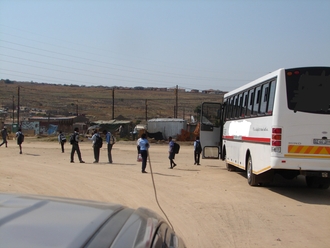.jpg)

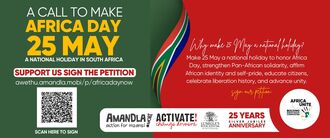
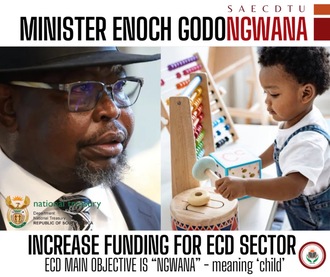
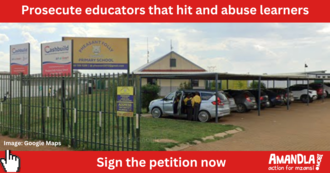.png)
